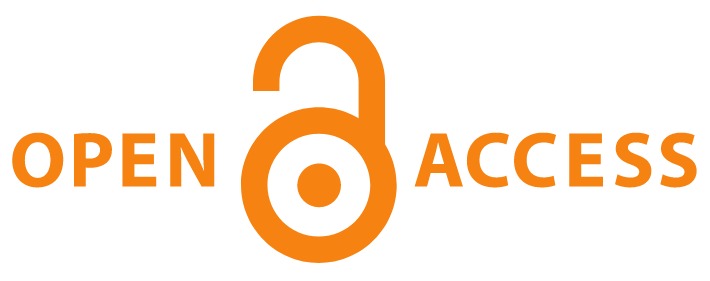Incidence of lifestyle on the academic performance of students, through an internal analysis at the Peninsula State University of Santa Elena UPSE, Santa Elena province year 2014
DOI:
https://doi.org/10.26423/rctu.v2i2.44Keywords:
Lifestyle, quality of life, academic yield, free timeAbstract
The present investigation has as objective to evaluate the incidence of the lifestyle in the academic yield of the students of the University State Peninsula of Santa Elena UPSE, the project is framed in knowing the lifestyles of the students that activities make in their free times, and in many of the cases because its academic yield diminishes, by means of technical of observation and interviews it was determined that the students spend stressed, they don't take a healthy lifestyle, they carry out little sport, they pass navigating in the social nets, they like to see the television a lot, and they dedicate few hours to study. It is for it the importance and the development of this project to give to know to the authorities that make their students outside of the university and in that use their free times. The methodology that you applies was of two types, quantitative and qualitative investigation, between the results of the analysis of the questionnaires and the focus groups, was determined that the students dedicate two hours to study, they don't sometimes attend classes for illness, laziness, or they are sleeping, they like to play soccer, to leave to parties, they consume alcoholic drinks, they consume tobacco, they navigate two hours and more in the social nets, they travel little for lack of resources, and in most of the cases they don't have breakfast, they read little, which affects its academic yield in great measure.
Downloads
References
Oblitas, L. A. (2006). Psicología de la salud y calidad de vida.
Sen,A., & Nussbaum, M. C. (1998).La calidad de vida. Fondo de Cultura Económica.
Soto, L. F. L., Torres, I. C. S., Arévalo, M. T. V., Cardona, J. A. T., Sarria, A. R., & Polanco, A. B. (2010). Comportamiento y salud de los jóvenes universitarios: satisfacción con el estilo de vida. Pensamiento Psicológico,5(12).
Suárez, J. R., Tomás, E. A., & Tomás, M. S. A. (2003). Jóvenes, fin de semana y uso recreativo de drogas: evolución y tendencias del ocio juvenil. Monografía Drogas Recreativas,15(suplemento.
Marc Antoni Adell i Cueva AÑO: 2006 EDICION: 2ªEstrategias para mejorar el rendimiento académico de los adolescentes.
José Carlos Núñez PérezJulio Antonio González-Pienda – 1994.Estrategias y enfoques de estudio y rendimiento académico.
Salazar-Torres, I. C., Varela-Arévalo, M. T., Lema-Soto, L. F., & Colombia, C. E. V. J. U. (2010). Evaluación de las conductas de salud en jóvenes universitarios. Revista de Salud Pública,12(4), 599-611.
HERNANDEZ SAMPIERI, ROBERTO: Metodología de la Investigación, 3ª edición.
NARESH MALHOTRA libro de Investigación Mercados 8va edición año 2008
LUIS TAMAYO TAMAYO. Libro Metodología de la Investigación. Año 2006
BERNAL, CESAR AUGUSTO, Año 2008, libro de Metodología de la Investigación
PAREDES GARCÉS WILSON, año (2009), Libro investigación de acción.
Tesis"Calidad de Vida del Estudiante Universitario", realizada por el alumno Ing. Everardo García. 3.5.1Estilo de Vida. http://cdigital.dgb.uanl.mx/te/1080095028/1080095028.PDF
Estilos de vida saludable, estudiantes universitarios, deportes, consumo de alimentos http://www.redalyc.org/pdf/686/68601109.pdf
Tesis estilos de vida y salud en estudiantes universitarios: la universidad como entorno promotor de la salud. http://www.tdx.cat/handle/10803/84136
http://www.uniminuto.edu/web/uvd/-/estilos-de-vida-saludables
Downloads
Published
Issue
Section
License
El titular de los derechos de autor de la obra, otorga derechos de uso a los lectores mediante la licencia Creative Commons Atribución-NoComercial-CompartirIgual 4.0 Internacional. Esto permite el acceso gratuito inmediato a la obra y permite a cualquier usuario leer, descargar, copiar, distribuir, imprimir, buscar o vincular a los textos completos de los artículos, rastrearlos para su indexación, pasarlos como datos al software o usarlos para cualquier otro propósito legal.
Cuando la obra es aprobada y aceptada para su publicación, los autores conservan los derechos de autor sin restricciones, cediendo únicamente los derechos de reproducción, distribución para su explotación en formato de papel, así como en cualquier otro soporte magnético, óptico y digital.













